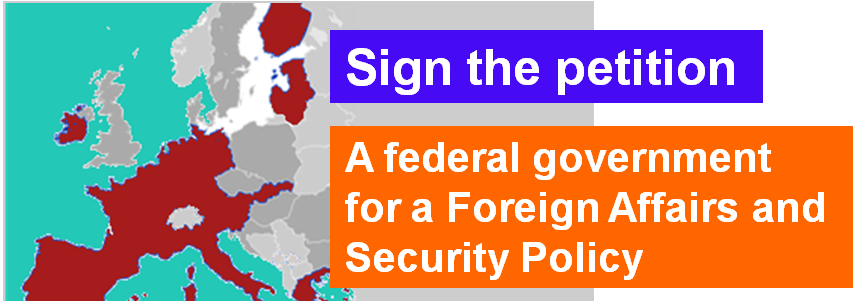To the President of the European Parliament
To the President of the European Commission
To the High Representative of the Union for Foreign Affairs and Security Policy
To the President of the Council of Ministers of the Italian Republic
To the Italian Minister for Foreign Affairs
We, European citizens, aware of Europe’s currently dramatic situation, which sees it:
- incapable, after six years, of resolving the Greek crisis, which is threatening the very survival of the euro;
- incapable of coming up with an answer to the dramatic problem of the influx of hundreds and thousands of men and women who are fleeing the Middle East and Africa, areas increasingly at the mercy of extremist terrorism, uncontrollable internal migration, failed and crumbling states, and political, religious and ethnic conflicts;
- incapable of handling in a credible manner, as shown by its management of the crisis in Ukraine, the new challenges posed by the new USA-Russia standoff, on our continent, in relation to the race for arms, both conventional and nuclear;
- incapable of equipping itself with a common foreign and security policy;
aware of the danger inherent in
the populist, eurosceptic and nationalist forces that are questioning the very foundations of European unification and the survival of democracy in Europe, and aware, at the same time, of what can be achieved through the current Treaties and what, instead, necessitates their overcoming;
call upon
- the President of the European Commission and the High Representative of the Union for Foreign Affairs and Security Policy to promote an immigration policy that goes beyond the Dublin III Regulation and the conclusions of the recent European Councils and involves the United Nations;
- the European Parliament to transform the current legislature into a constituent legislature through a proposal for comprehensive Treaty revision, to be carried out by a convention/constituent assembly specifically entrusted with: a) defining the structure, institutions and powers of the fiscal union, the economic union and the political union (which must include powers of defence and foreign policy) among the states, starting with those of the eurozone, that are willing to transfer their sovereignty in these areas; b) establishing the nature of the relationship between the federation thus created and the states that will remain in the EU alone; c) including, in the draft constitution, procedures for ratification by majority vote, possibly through a European referendum with a double majority of citizens and states
- the Italian government to take on the task of promoting a permanent structured cooperation in the defence sector, involving the other member states willing and able to assume similar responsibilities, so as to provide an initial and partial response to the increasingly urgent questions of security.


